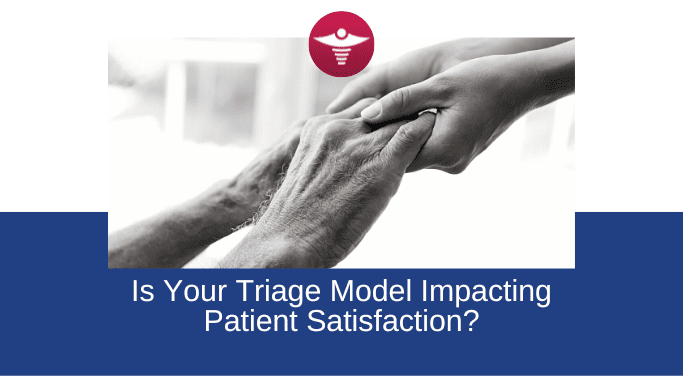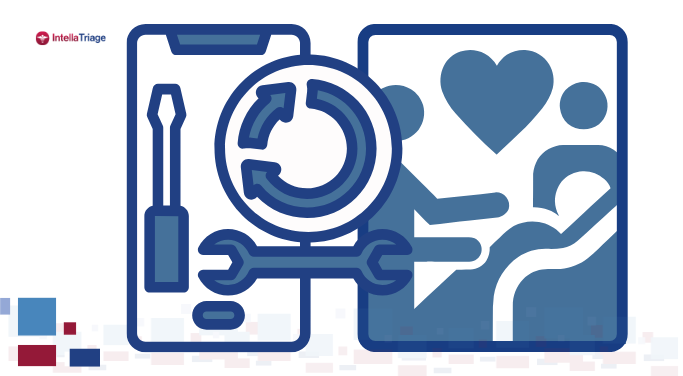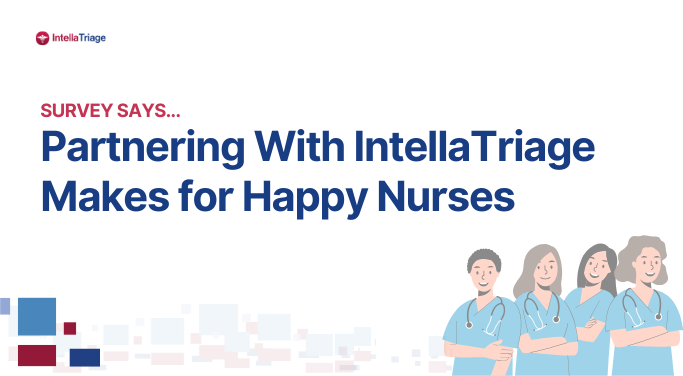Hospice and home health triage models directly impact patient satisfaction. Patient satisfaction directly impacts your CAHPS scores (patient experience surveys). CMS publicly reports the results of its patient experience surveys, and some surveys affect payments to CMS providers. So, practically speaking, the best way to improve your patients’ experience and thus your CAHPS scores is by putting the patient or caregiver in touch with a registered nurse every chance you get.
IntellaTriage nurses answer hundreds of thousands of calls annually, so we have the best supportive data in the industry regarding triage statistics. Here are some of the most common calls we see after hours and some protocols to put in place to address them so you can improve your patient experiences.
Clinical Triage Calls
According to our data, clinical incidences in both hospice and home health comprise the most significant percentage, 36.6%, of all calls after hours. When your patient is battling a chronic condition or ongoing health concern, they may be vulnerable to complications. Regular aftercare check-ins allow you to keep tabs on each patient. The most salient example is wound care after a procedure. When healthcare providers are alerted to signs of infection in a timely fashion, they can correct the patient’s approach before things become dire. Achieve quick intervention when you regularly interface with patients and ensure their adherence to post-discharge protocols by having a registered nurse available to address their concerns and improve patient satisfaction.
Medication Triage Calls
The average amount of after-hours calls hospice agencies receive regarding medication is 18.2% of all calls. 43% of those calls are about refills. When calls for medication refills occur after hours, they directly impact the patient experience. The lack of communication can result in lower CAHPS scores for questions surrounding medication management and getting timely help. In addition, after-hours medication refills can cost up to $200 per refill. Understand the frequency and make-up of calls to inform your clinical teams to take action and meaningfully improve daytime practices. This will result in better patient care and decreased medication costs.
Supplies Triage Calls
It is much the same for DME. Before coming on service, a new client-agency recently tracked the number of supplies calls they received after hours. Incidences had varied over the trailing three-month period from 3.2% to 4.2% compared to a benchmark of 5.6%. With IntellaTriage call data monitoring and applied quality improvement practices, supply incidence is lower over three months than the standard. Each level of care can benefit from effective aftercare communication and patient engagement. Call notes are entered directly into the EMR, and items requiring physician attention are flagged for review.
Scheduling After-Hours Calls
Effective communication is vital within your team. Services like IntellaTriage provide customized aftercare for your patients and deliver patient feedback to your practice. For the agency in the example above, scheduling incidences had increased from 9.2% to 10% over the trailing three-month period compared to the industry average benchmark of 6.2%. With the help of our dashboard, the agency’s team now regularly logs interactions and tracks calls directly in the EMR. Daily care teams can address gaps in processes that lead to incidences.
Timely Communication Is Critically Important to Patient Satisfaction
Patients need the correct information at the right time. So when they call your triage team, they need to speak with a qualified healthcare professional rather than someone taking messages for a return call. A best practice is a triage solution that provides licensed, registered nurses 24/7. Your patients will be able to connect immediately with someone who can provide the advice they need after hours. For example, we helped a hospice in the Mid-Atlantic region improve from about ten points below average CAHPS score on after-hours to about ten points above the national average. Read more about that here.
Family members are only sometimes able to call during office hours. They may have concerns after your office closes and need comfort and guidance. A few reassuring words, a bit of quality medical guidance, or an empathetic ear may be all the family member needs when they are worried about their loved one’s well-being. A registered nurse fielding triage calls after hours offers precisely the support those family members need, freeing up your staff nurses to care for the patients themselves.
Outsourcing to IntellaTriage
IntellaTriage offers qualified nurse triage services for hospice and home health. Our 24/7 triage services are provided by a team of licensed, registered nurses. We ensure that your patients receive top-quality care at all hours, improving the patient experience and increasing patient satisfaction scores.
Our team becomes an extension of your own. By using gold-standard protocols and recording interactions in your EMR, IntellaTriage’s nurses address up to 80% of concerns with home care recommendations. This elite level of care is just one phone call away, meaning that while your patients’ issues are addressed, your nurses can focus on other tasks.
Transform your after-hours model. Contact IntellaTriage for a complimentary consultation.
Contact Us for a Consultation
Ready to optimize your triage process? Reach out to us today for a consultation tailored to your needs. Let’s elevate your patient care together.
More From The Blog
In 2008, IntellaTriage was founded from a deeply personal experience. Our founder, Suzi Meschbach, saw firsthand how fragmented after-hours nurse triage care could impact not only patients in hospice and home health, but also their families and clinicians. As caregiver for an elderly grandparent while still juggling her career and family, Suzi Meschbach did not [...]
In hospice care, nurse burnout is often treated like the weather: inevitable, unpredictable, and something we all just have to live with. But what if it isn’t? What if burnout isn’t just a symptom of emotional fatigue, but also a byproduct of structural design? A result of the way hospice teams are staffed, supported, and [...]
Survey Says… Partnering With IntellaTriage Makes for Happy Nurses In today’s competitive healthcare landscape, becoming the employer of choice is a strategic advantage. And if you’re in hospice or home health, your clinicians aren’t just looking for better pay. They’re looking for better balance. According to a recent survey of IntellaTriage clients, 96% say our [...]

